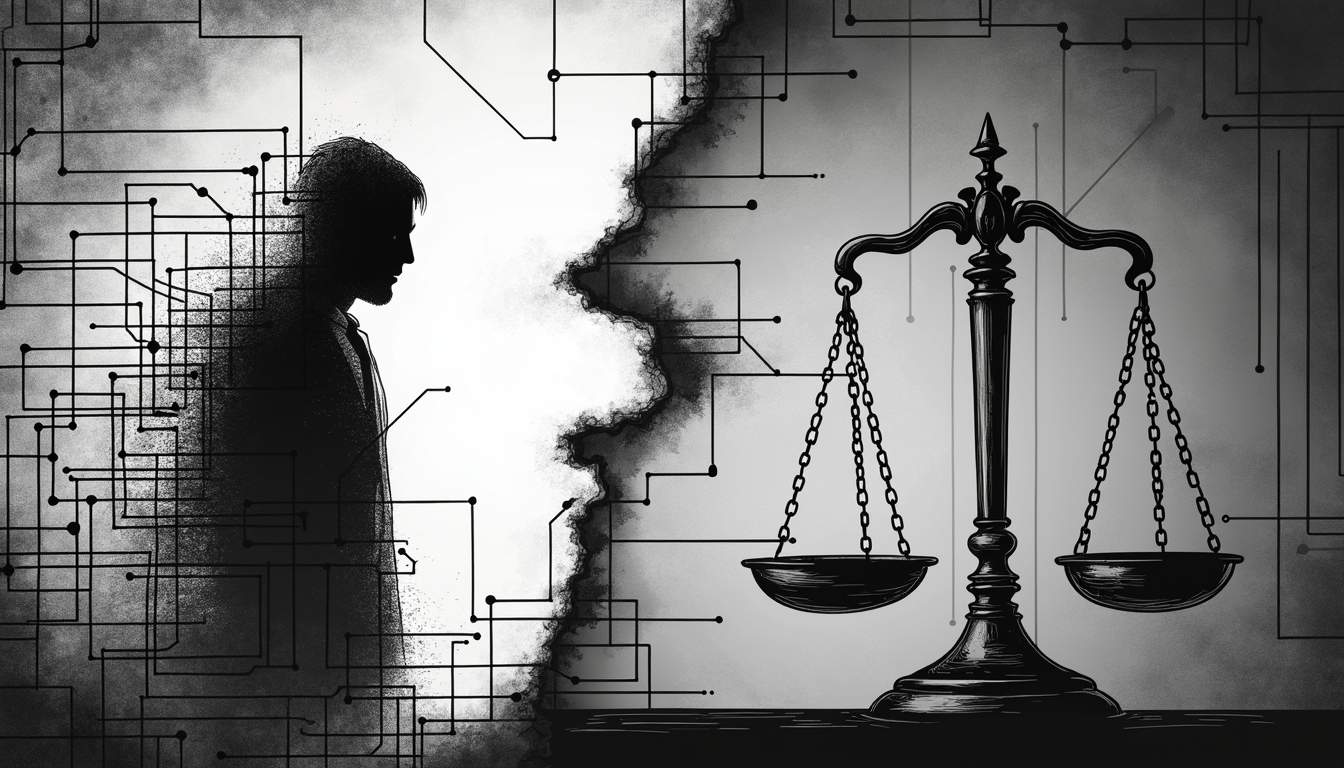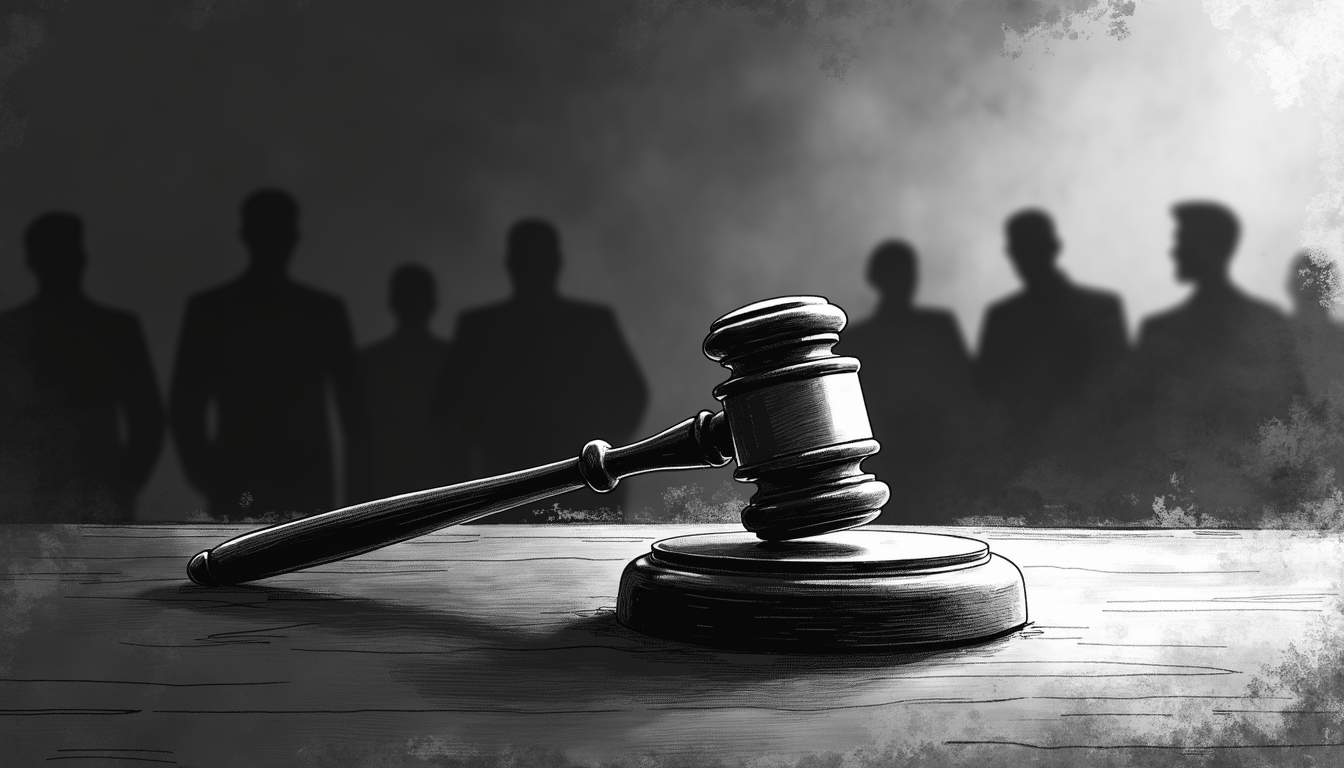Imagine this: in a world where our lives are becoming more intertwined with digital interactions, a court decides to grant bail to cybercriminals. It’s got people buzzing, and for good reason. Recently, the Federal High Court in Abuja granted bail to 109 foreign hackers, and it’s a serious topic worthy of discussion. Let’s dive into what this means for justice and public safety, especially with the impact of blockchain technology.
The Shady Side of Cybercrime Bail
First up, the Federal High Court in Abuja made headlines when it granted bail to 109 foreign hackers charged with high-level cybercrimes and hacking activities. The ruling came from Justice Ekerete Akpan, following an application from the defense counsel, James Onoja, SAN. Each accused had to present five sureties and post a total sum of N1 billion. Now, that’s a hefty price tag, but with cybercrime running rampant, is this really the right move?
The legal implications of this decision are complicated. When considering bail for cybercriminals, the court has to weigh the severity of the offense, the strength of the evidence, and whether the accused is likely to flee or reoffend. The defense argued that they were all about due process during the trial. They submitted all travel documents of the defendants to make sure they couldn’t leave the country, a move that was designed to alleviate some concerns.
The prosecution didn’t oppose the bail, and the court set conditions that the sureties must own property within the Abuja vicinity and provide two recent passport photographs. This raises eyebrows because it seems like a loophole for more cybercrime to occur while these individuals are free.
The Dilemma: Rights vs. Public Safety
Here’s where it gets tricky: how do you balance the rights of the accused with the need for public safety? Sure, the accused have the right to a fair trial and the presumption of innocence. But releasing cybercriminals on bail is a gamble. There’s a significant risk that they could continue their illicit activities, not to mention the potential erosion of public trust in the justice system.
The defense made their case, stating that the essence of bail is to allow defendants to stand trial. But does this really protect the public interest? And how does this influence global perceptions of justice?
Looking Beyond Borders
This isn’t just a Nigerian issue. The global landscape of cybercrime is fraught with challenges, especially when it comes to enforcing the law across jurisdictions. Take the case of Alexander Vinnik, for instance. He was convicted of money laundering tied to the BTC-e exchange. After a protracted legal battle, he was extradited to France and charged with ransomware attacks and money laundering.
Or consider the Ethereum developer who violated bail terms by accessing Coinbase. If they can’t keep tabs on them, how can we expect to maintain public trust?
The Blockchain Advantage
Blockchain technology steps in here, offering a glimmer of hope for enhancing digital security and preventing cybercrime. Its immutable nature ensures data integrity, which can make it difficult for cybercriminals to alter or delete transactions. Transparency is key in detecting and preventing cybercrime, after all, since everything is recorded on a public ledger available in real-time.
Blockchain analytics tools are invaluable for tracking illicit transactions, including money laundering and terrorism financing. These tools link various wallets and transactions, helping law enforcement connect the dots. Regulatory measures like the Travel Rule (FATF Recommendation 16) enhance these efforts by requiring Virtual Asset Service Providers to share originator and beneficiary information.
However, blockchain’s decentralized nature complicates things. Jurisdictional issues come into play, making it hard to pinpoint applicable laws for disputes.
Summary: Striking a Balance
What does it all mean? Granting bail to cybercriminals is a double-edged sword, posing significant challenges for justice and public safety. The decision has to balance the rights of the accused with the need for public safety, and international cooperation is crucial in maintaining a uniform perception of justice.
Blockchain technology may offer solutions, but it also presents challenges. As the landscape of cybercrime continues to evolve, the justice system needs to adapt to ensure legal decisions are not only fair but also perceived as effective, ultimately safeguarding public trust and safety.








